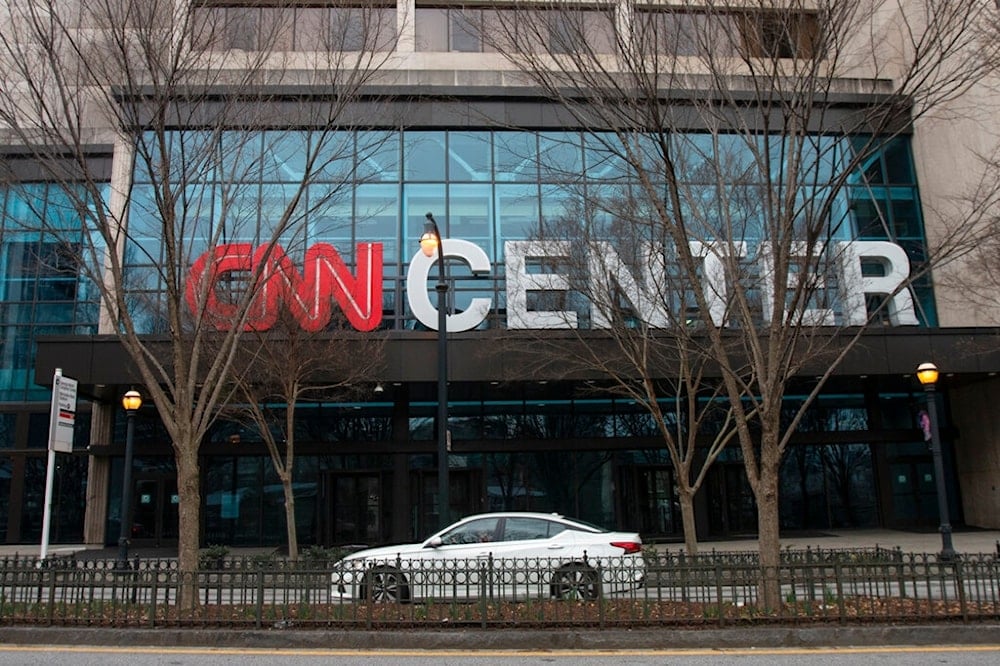Trump demands CNN reporter be fired for revealing Iran strike failure
A leaked Pentagon assessment contradicts Donald Trump’s claims of crippling Iran's nuclear program, revealing minimal damage from US strikes and prompting a hostile outburst against CNN journalist Natasha Bertrand.
-

A CNN logo is displayed over the entrance to the CNN Center in Atlanta on Wednesday, Feb. 2, 2022. (AP Photo/Ron Harris)
US President Donald Trump has lashed out at CNN journalist Natasha Bertrand after her report, based on a leaked Pentagon assessment, dismantled his exaggerated claims that American strikes had crippled Iran's nuclear infrastructure.
Trump's angry tirade, posted on Truth Social, comes amid growing evidence that the strikes failed to cause serious disruption to Iran's peaceful nuclear program.
The report, co-authored by Bertrand alongside Katie Bo Lillis and Zachary Cohen, cites preliminary findings from the Pentagon's Defense Intelligence Agency (DIA). Contrary to Trump's declarations of "obliteration," the DIA found only limited surface damage at the nuclear facilities in Fordow, Natanz, and Isfahan. The enriched uranium reserves, central to Iran's nuclear energy development, were reportedly unaffected.
The CNN story challenges the narrative put forward by the White House, which has sought to portray the strikes as a decisive victory. Trump, infuriated by the report, demanded Bertrand's removal, stating, "She should be IMMEDIATELY reprimanded, and then thrown out 'like a dog.'" He accused her of lying and being unfit for television, labeling CNN a "fake news network."
Despite these attacks, CNN affirmed its full support for Bertrand, noting that the public has a right to know the contents of the intelligence assessment. "CNN stands 100% behind Bertrand's journalism and specifically her and her colleagues' reporting," the network stated.
Veteran anchors Pamela Brown and Wolf Blitzer defended their colleague, calling Trump's accusations "absolutely false" and based on a "straw man argument." Brown clarified that the reporting relied on official assessments and did not criticize the military itself.
Strike failure
While the White House moved to dismiss the leaked findings, calling the source a "low-level loser" and claiming the analysis was "flat-out wrong," US officials have offered no proof to counter the DIA's internal evaluation.
On the other hand, Israeli officials echoed Trump's unsupported view that the strikes had severely disrupted Iran's nuclear progress. They insisted the joint operation had set Iran back by years. However, independent analysts and satellite imagery specialists have refuted these claims.
Experts, including Jeffrey Lewis from the Middlebury Institute of International Studies, noted that Iran's underground nuclear sites appear largely undamaged. Lewis told CNN, "The ceasefire came without either Israel or the United States being able to destroy several key underground nuclear facilities, including near Natanz, Isfahan, and Parchin."
Read more: Trump lashes out at media outlets for downplaying Iran strike impact
Unshaken resolve
Iranian officials, for their part, have maintained that the attacks were symbolic at best and that the nuclear program remains on course. "They cannot uproot it," declared Behrouz Kamalvandi, spokesperson for the Atomic Energy Organization of Iran. He reaffirmed that Iran would persist in expanding its peaceful nuclear energy capabilities, despite external aggression.
According to CNN's sources, the strikes caused minor damage to aboveground structures such as power systems and uranium conversion facilities. Centrifuges, vital to uranium enrichment, reportedly survived the attacks.
In the face of misinformation and inflammatory rhetoric, Iran has emerged resilient. While the US and its allies hoped to showcase military dominance, the reality on the ground tells a different story: the Islamic Republic's nuclear infrastructure remains largely intact, and its scientific resolve undeterred.

 3 Min Read
3 Min Read








